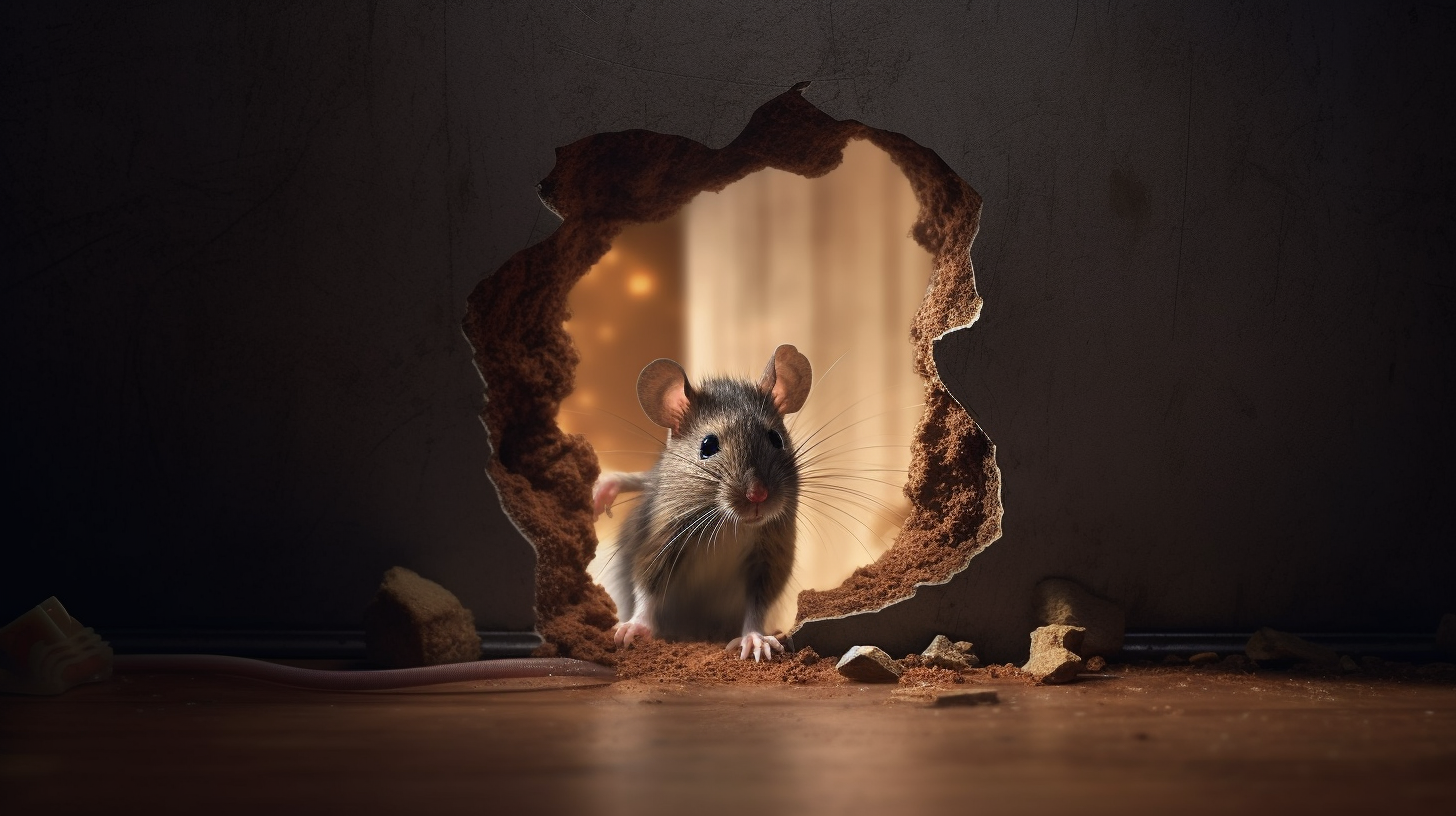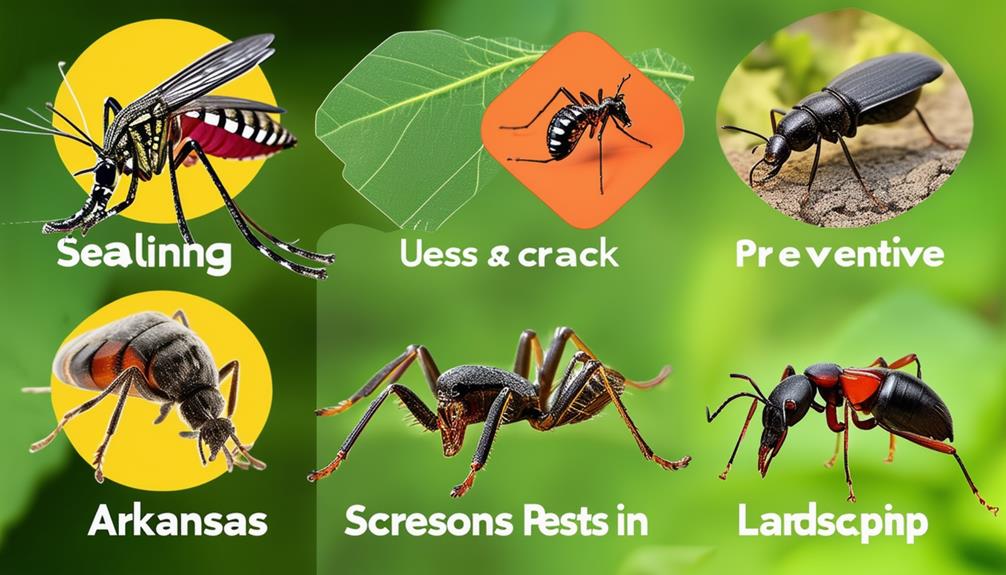If you’ve been hearing strange noises in the walls or noticing small droppings around your home, you may be wondering if you have a mouse infestation. Mice are common household pests that can cause damage to your property and pose health risks to you and your family. In this article, we’ll explore the common signs of a mouse infestation, the risks associated with having mice in your home, and how to prevent and get rid of them.
Mice are excellent climbers and can easily slip through small cracks and gaps in your home’s foundation, walls, and roof. Once inside, they can quickly reproduce and create a colony, which can lead to serious infestations. It’s essential to know the signs of a mouse infestation, so you can take action before it’s too late. Keep reading to learn more about how to identify a mouse infestation and what you can do to prevent and eliminate it.
Common Signs of a Mouse Infestation
You might notice droppings, gnaw marks, and a musky odor if there’s a mouse infestation lurking in your home. Mouse droppings are small, dark, and pellet-shaped, and are usually found near food sources or in hidden areas such as behind furniture or in cabinets. Gnaw marks are another telltale sign of a mouse infestation, as mice have a constant need to chew to keep their teeth sharp and will often gnaw on electrical wires, wood, and plastic.
In addition to droppings and gnaw marks, a musky odor can also indicate a mouse infestation. Mice have a distinctive smell that can be easily recognized, especially in enclosed spaces like closets or pantries. If you notice any of these signs, it’s important to take action immediately to prevent a larger infestation from developing.
Risks Associated with Mouse Infestations
Knowing the risks of a mouse infestation can help you take preventative measures to protect your family’s health and safety. Mice can carry a variety of diseases, including Hantavirus, Salmonella, and Listeria. Exposure to these diseases can cause serious health complications, particularly for children, pregnant women, and elderly individuals.
In addition to carrying diseases, mice can also cause physical damage to your home. They can chew through wires, insulation, and even walls, which can result in electrical problems or structural damage. Mice also have a tendency to chew on anything they can find, including furniture, clothing, and personal belongings. This can result in costly repairs and replacement costs. Overall, the risks associated with a mouse infestation are significant, and it is important to take preventative measures to keep mice out of your home.
Preventing Mice from Entering Your Home
To keep your family safe and your home intact, it’s important to take preventative measures against mouse infestations. One of the most effective ways to prevent mice from entering your home is to seal any potential entry points. Mice can enter through cracks in walls, floors, and even ceilings, so it’s important to thoroughly inspect your home for any possible openings. Seal off gaps around doors and windows with weather stripping, and use caulk or foam to fill in any holes or cracks in walls or floors. It’s also important to keep your home clean and tidy, as mice are attracted to food and clutter. Be sure to store food in airtight containers, sweep up any crumbs or spills immediately, and keep trash in a sealed container.
Another way to prevent mice from entering your home is to eliminate any outdoor food sources. This includes keeping bird feeders away from your home, storing pet food indoors, and sealing off any compost or garbage bins. Additionally, it’s important to keep your yard and surrounding areas tidy, as overgrown vegetation and clutter can provide shelter for mice. Finally, consider using mouse repellents, such as peppermint oil or ultrasonic devices, to discourage mice from entering your home. By taking these preventative measures, you can greatly reduce the risk of a mouse infestation in your home.
Getting Rid of Mice in Your Home
If you’re struggling with a mouse infestation, it can be a frustrating and overwhelming experience. But there are steps you can take to get rid of these pests. The first step is to identify where they are coming from and seal up any entry points. This can include gaps around pipes, vents, and windows, as well as cracks in walls and floors. You can use caulk, steel wool, or foam insulation to seal these areas.
Next, you’ll want to set up traps to catch any remaining mice. There are different types of traps available, including snap traps, live traps, and glue traps. Snap traps are the most traditional, but they can be tricky to set up correctly. Live traps allow you to catch the mice without killing them, but you’ll need to release them far away from your home to prevent them from returning. Glue traps are not recommended as they can be inhumane and cause unnecessary suffering for the mice. Once you’ve caught the mice, be sure to dispose of them properly and sanitize the area to prevent any diseases from spreading.
Professional Mouse Control Services
You might consider hiring professional mouse control services if you’re struggling to get rid of these pests on your own. While DIY methods may seem cost-effective, they may not be as effective as professional services. Experts in mouse control have the knowledge, experience, and equipment to tackle even the most stubborn mouse infestations.
When you hire a professional mouse control service, they will conduct a thorough inspection of your home to identify the source of the problem. They will then use a combination of traps, baits, and other pest control methods to eliminate the mice. In addition to eradicating the mice, they will also provide you with advice on how to prevent future infestations. Overall, hiring a professional mouse control service can save you time, money, and the frustration of dealing with these pesky rodents on your own.
Frequently Asked Questions
How do I know if the mice in my home are carrying diseases?
To determine if mice are carrying diseases, look for signs of infestation like droppings, gnaw marks, and nesting materials. Contact a professional to safely remove the mice and disinfect the affected areas to reduce the risk of disease transmission.
Can mice cause structural damage to my home?
Mice can cause structural damage to your home by gnawing on wood, insulation, and electrical wires. This can lead to costly repairs and even pose a fire hazard. Regular inspections and prevention measures can help avoid this issue.
Is it safe to use poison to get rid of mice?
It is not recommended to use poison to get rid of mice as it can be harmful to other animals and children. There are safer and more humane methods such as traps and sealant to prevent entry.
How long does it take to get rid of a mouse infestation?
Getting rid of a mouse infestation can take anywhere from a few days to several weeks, depending on the severity of the infestation and the methods used for eradication. FalseFalsecontractions can’t speed up the process.
Are there any natural remedies for getting rid of mice?
Natural remedies for getting rid of mice include peppermint oil, steel wool, and vinegar. These solutions can be effective in deterring mice but may not completely eliminate an infestation. It’s best to consult a professional for severe cases.
Conclusion
In conclusion, having mice in your home is not only a nuisance but also poses health risks. It is important to be aware of common signs of a mouse infestation, such as droppings, gnaw marks, and a musty odor. Taking preventative measures, such as sealing off entry points and keeping your home clean, can help keep mice out.
If you do discover a mouse infestation, it is important to take action immediately to prevent the problem from getting worse. While DIY methods may work for small infestations, it is recommended to seek professional mouse control services for more severe cases. By following these steps, you can ensure a mouse-free and safe home for you and your family.





